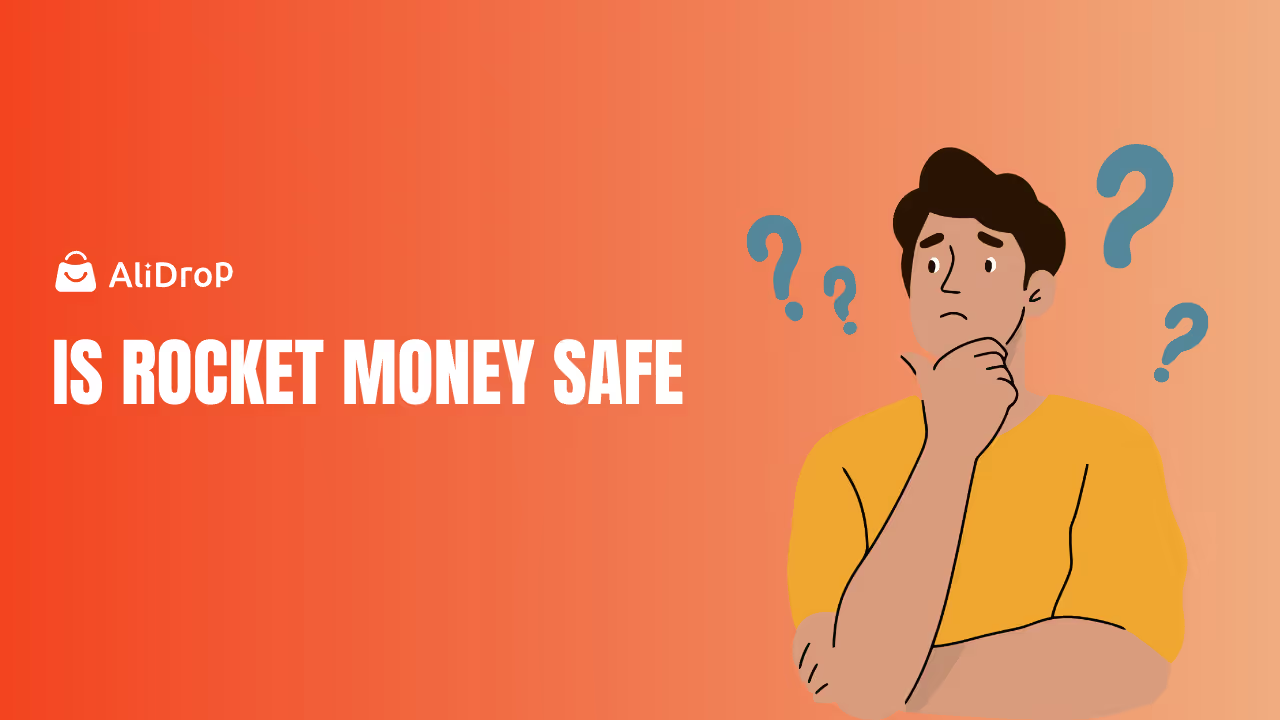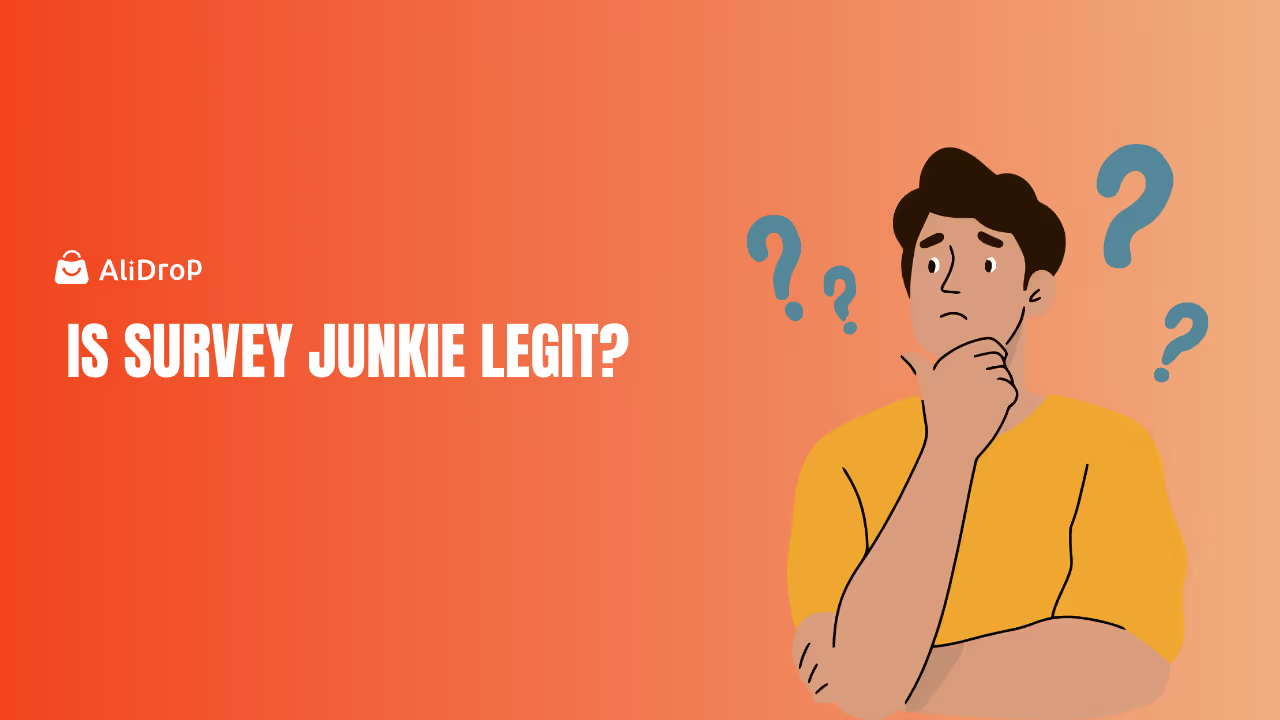E-commerce continues to thrive in 2025, and Shopify remains one of the leading platforms for businesses looking to sell products online. However, with the rise of online scams, hidden fees, and unreliable platforms, many new entrepreneurs are left wondering, Is Shopify legit? Can you really build a successful business on it?
Shopify enables users to set up an online store without needing extensive technical knowledge, offering everything from website hosting to payment processing .This article will take a deep dive into Shopify’s legitimacy, security, and business potential, while also addressing common concerns like transaction fees, customer support, and real-life success stories.
.avif)
What is Shopify and How Does It Work?
Shopify is a cloud-based eCommerce platform that allows users to create and manage online stores with ease. Whether selling physical products, digital goods, or dropshipping items, Shopify provides a seamless infrastructure that integrates with third-party suppliers, payment gateways, and marketing tools.
Key Features of Shopify
- Customizable Online Store – Drag-and-drop website builder with multiple themes.
- Secure Payment Processing – Accepts credit cards, PayPal, Apple Pay, and Google Pay.
- Multi-Channel Selling – Sell on Facebook, Instagram, TikTok, and Amazon.
- Dropshipping-Optimized – Integrates with Spocket, allowing sellers to source high-quality products from reliable suppliers.
- SEO & Marketing Tools – Includes built-in SEO features, email marketing, and retargeting ads.
- Mobile-Friendly Interface – Optimized for mobile shopping to enhance conversions.
Shopify caters to businesses of all sizes, from startups to enterprise brands, offering flexible pricing plans to accommodate different business needs.
Is Shopify Legit and Safe?
With the increasing number of fraudulent websites and unreliable eCommerce solutions, it is understandable to question whether Shopify is truly a safe and legitimate platform.
The short answer is yes—Shopify is 100% legit and secure. As one of the leading eCommerce platforms in the world, Shopify provides high-level security, transparency, and compliance with global financial regulations. It is also trusted by millions of businesses, from startups to global enterprises.
Let’s take a closer look at why Shopify is legitimate, financially stable, and a trusted platform for businesses of all sizes.
1. Shopify is a Publicly Traded Company
One of the strongest indicators of Shopify’s legitimacy is the fact that it is a publicly traded company on the New York Stock Exchange (NYSE: SHOP).
Why Does This Matter?
- Financial Transparency: Publicly traded companies must adhere to strict financial regulations and reporting standards. This ensures that Shopify’s operations, earnings, and business practices remain transparent and accountable.
- Investor Confidence: With a market valuation exceeding $70 billion, Shopify is one of the most financially stable eCommerce platforms available today. Investors and business owners continue to place their trust in the platform, indicating its credibility and long-term reliability.
- Regulatory Oversight: Shopify operates under legal scrutiny and must comply with international financial regulations, ensuring that it is not a scam or a fraudulent platform.
In contrast, many unreliable eCommerce platforms are privately owned and do not have the same level of transparency or accountability. Shopify’s public status guarantees a higher level of trustworthiness than many of its competitors.
2. Millions of Businesses Trust Shopify
Another proof of Shopify’s legitimacy is the sheer number of businesses that use it. Shopify is the backbone of over 4.4 million active online stores across 175+ countries, serving businesses of all sizes.
Some of the world’s biggest brands have built their eCommerce success on Shopify, including:
Gymshark (Fitness Apparel Brand)
- Started as a small Shopify store in 2012 and has grown into a billion-dollar fitness apparel brand.
- Used Shopify’s scalable infrastructure to handle rapid growth and international sales.
- Invested heavily in social media marketing and influencer partnerships, leveraging Shopify’s integrations with Facebook, Instagram, and TikTok.
Kylie Cosmetics (Beauty Brand by Kylie Jenner)
- Launched on Shopify in 2015 and became a $600 million business within a few years.
- Shopify’s platform provided seamless order processing, payment handling, and mobile optimization, making it easy for fans to purchase Kylie’s beauty products.
- Handled massive traffic spikes during product launches, proving Shopify’s robust infrastructure and reliability.
Tesla (Automotive Giant)
- Tesla, the electric car company owned by Elon Musk, uses Shopify for selling branded merchandise and accessories.
- Shopify’s flexibility allows even large enterprises to customize their eCommerce experiences and manage inventory efficiently.
These examples highlight Shopify’s ability to support businesses at all levels—whether you are a small business just starting out or a billion-dollar brand looking for a scalable eCommerce solution.
If Shopify were not a legitimate and secure platform, it would not be trusted by top brands and millions of businesses worldwide.
3. Shopify is PCI-DSS Compliant and Secure
One of the biggest concerns for online store owners is payment security. Handling customer payment details and personal data requires compliance with strict industry security standards.
Shopify is Level 1 PCI DSS compliant, which means it adheres to the highest security standards for processing payments and handling sensitive customer data.
What Does PCI-DSS Compliance Mean?
PCI-DSS (Payment Card Industry Data Security Standard) is a global security standard that protects credit card transactions from fraud, breaches, and data theft.
As a PCI-compliant platform, Shopify offers
- Secure Payment Processing – Shopify encrypts payment data, protecting customer transactions from cyber threats.
- Fraud Prevention Tools – Shopify provides built-in fraud detection features that flag suspicious transactions.
- SSL Encryption for Every Store – Every Shopify store comes with SSL certificates, ensuring that data is transmitted securely.
With cybersecurity threats increasing worldwide, Shopify has invested heavily in advanced security features to protect businesses and customers from hacking attempts, phishing scams, and fraudulent transactions.
By choosing Shopify, you are using a platform that meets the highest security standards—something that scam eCommerce platforms do not offer.
4. Transparent Pricing with No Hidden Fees
A major red flag of scam eCommerce platforms is their hidden fees, misleading pricing, and unexpected charges. Shopify, on the other hand, is known for its transparent pricing.
Shopify Pricing Plans (2025)
Basic Shopify – $29/month
Shopify (Standard Plan) – $79/month
Advanced Shopify – $299/month
Each plan comes with clear features and a 3-day free trial, allowing users to test the platform risk-free.
Are There Any Hidden Fees?
No, Shopify does not have hidden fees. However, additional transaction fees may apply if merchants choose external payment processors instead of Shopify Payments.
- If you use Shopify Payments (the platform’s built-in payment gateway), no additional transaction fees apply.
- If you use third-party payment gateways like PayPal or Stripe, a small transaction fee is charged (ranging from 0.5% to 2%).
This pricing model is clearly outlined on Shopify’s website, ensuring complete transparency.
If Shopify were a scam, it would not provide upfront pricing and would instead use deceptive practices to extract money from users.
5. Shopify Offers 24/7 Customer Support
Unlike unreliable platforms that lack support, Shopify provides 24/7 customer service via:
- Live Chat – Instant assistance from Shopify representatives.
- Email Support – Response time within a few hours.
- Phone Support – Available for urgent issues.
- Help Center & Community Forum – Extensive guides, tutorials, and user discussions.
Shopify also offers personalized support for enterprise clients using Shopify Plus.
This commitment to customer support ensures that business owners receive assistance whenever they need it—another indicator of Shopify’s legitimacy and reliability.
Pros and Cons of Shopify: A Detailed Analysis
Explore the strengths and weaknesses of Shopify to determine if it's the right platform for your business. In this detailed analysis, we'll break down everything you need to know before making your decision.
Pros of Shopify
1. Beginner-Friendly – Easy Setup with No Coding Required
One of Shopify's biggest advantages is its user-friendly interface. Whether you're a complete beginner or an experienced entrepreneur, Shopify makes setting up an online store quick and simple. The platform provides pre-designed themes, an intuitive drag-and-drop editor, and step-by-step guidance, allowing users to launch their store without any coding knowledge.
2. Highly Secure – PCI-Compliant with SSL Encryption
Security is crucial for any eCommerce store, and Shopify ensures that all transactions are protected. The platform is PCI DSS Level 1 compliant, which means it follows strict security standards for handling credit card payments. It also includes SSL encryption to safeguard customer data, providing a secure shopping experience and building trust with buyers.
3. Scalable – Suitable for Startups, Small Businesses, and Enterprises
Shopify is designed to grow with businesses of all sizes. Whether you are launching a small online store or running a large enterprise, the platform provides tools and resources to scale operations efficiently. With access to Shopify Plus, businesses can expand globally while handling high traffic and large inventories with ease.
4. Multi-Channel Selling – Sell on Social Media, Amazon, and Other Platforms
Shopify allows businesses to reach customers across multiple channels. Store owners can integrate their shop with platforms like Facebook, Instagram, TikTok, Amazon, and eBay, making it easier to sell products wherever customers are most active. This feature enhances brand visibility and boosts sales potential.
5. Dropshipping Integration – Works Seamlessly with Spocket for Automated Product Sourcing
Shopify is one of the best platforms for dropshipping, offering seamless integration with various dropshipping apps, including Spocket. This allows entrepreneurs to source high-quality products from global suppliers without handling inventory or shipping. The automated fulfillment process makes it easy to manage orders efficiently. As you scale dropshipping operations, a dedicated Shopify automation integration can streamline the heavy lifting: auto-importing products, syncing stock and price changes from multiple suppliers, routing orders to the right vendor, and sending tracking back to customers. This complements supplier apps like Spocket and AliDrop, reduces manual errors, and helps maintain accurate catalogs while you focus on marketing and growth.
6. SEO and Marketing Features – Helps Stores Rank on Google and Social Media
Shopify includes built-in SEO tools that help businesses improve their visibility on search engines. Users can optimize product pages, edit meta tags, and generate sitemaps to rank higher on Google. Additionally, Shopify provides robust marketing tools, such as email campaigns, discount codes, and integrations with advertising platforms like Google Ads and Facebook Ads, making it easier to attract and retain customers.
Cons of Shopify
1. Subscription Costs – Expensive for Beginners
Shopify operates on a subscription model, with the basic plan starting at $29 per month. While this includes essential eCommerce features, the cost can be a barrier for beginners who are just starting out. Higher-tier plans offer advanced features but come at a significantly higher price, which may not be feasible for small businesses with tight budgets.
2. Transaction Fees – Additional Fees if Using External Payment Processors
Although Shopify provides its own payment gateway (Shopify Payments) with zero transaction fees, users who opt for third-party payment processors like PayPal or Stripe incur additional transaction charges. These fees can add up, especially for businesses processing high volumes of sales.
3. Advanced Customization Requires Coding Knowledge
While Shopify offers a variety of themes and customization options, deeper modifications often require knowledge of Liquid, Shopify’s proprietary coding language. This can be a challenge for users who want extensive design changes or advanced functionality but lack technical expertise. Hiring a developer to make these adjustments can add to the overall cost of running a Shopify store.
Is Shopify Worth It in 2025?
If you’re considering starting an eCommerce business in 2025, Shopify is definitely worth your attention. Here’s why:
- User-Friendly Setup: Shopify’s intuitive platform makes it easy for beginners to get started. With a simple, step-by-step setup process, even those without technical experience can build a professional-looking online store in no time.
- Scalability for Long-Term Growth: Whether you’re just starting out or have an established brand, Shopify grows with your business. Its flexible plans and features allow you to scale effortlessly as you expand your product range, customer base, and sales volume.
- Dropshipping-Ready Infrastructure: Shopify is perfect for dropshipping, especially with Spocket integration. This allows you to easily source products from reliable suppliers and automate order fulfillment, making it ideal for entrepreneurs who want to run a low-risk, inventory-free business.
- Secure Payment Processing and PCI Compliance: Shopify ensures that your transactions are safe with secure payment processing and PCI-compliance. This guarantees that both you and your customers are protected, building trust and reducing the risk of fraud.
- Robust Features, Marketing Tools, and Automation: Shopify offers a wealth of built-in features like customizable themes, SEO tools, and marketing integrations. You can easily automate your sales process, track customer data, and create targeted marketing campaigns, giving you more time to focus on growing your business.
With all these powerful tools at your disposal, Shopify remains one of the top eCommerce platforms for 2025, making it a solid choice for anyone looking to start or expand an online store.
Conclusion: Is Shopify Legit?
Shopify is a trusted and legitimate eCommerce platform used by millions of businesses worldwide, from small startups to global giants. As a publicly traded company, it operates with strict regulations, ensuring security, transparency, and reliability for both merchants and customers. Shopify’s robust features, including secure payment systems, transparent pricing, and an extensive app marketplace, make it a top choice for entrepreneurs looking to build and scale their online stores.
For those interested in dropshipping, Shopify’s integration with Spocket and AliDrop offers fast-shipping, high-quality products to power your business. Ready to start dropshipping with ease? Get started with AliDrop today to access reliable suppliers and grow your store effortlessly!
FAQs About Shopify’s Legitimacy
Is Shopify safe to use?
Yes, Shopify is SSL-encrypted and PCI-compliant, ensuring that all transactions and customer data are securely protected. With built-in fraud prevention and secure payment gateways, it remains one of the safest eCommerce platforms for online businesses.
Can you make money with Shopify?
Yes, thousands of entrepreneurs generate six-figure incomes using Shopify through dropshipping, private labeling, print-on-demand, and branded stores. Success depends on choosing the right niche, effective marketing strategies, and optimizing conversions.
Is Shopify better than Amazon?
Shopify allows you to build your own brand, customize your store, and maintain full control over pricing and customer relationships. Amazon, on the other hand, provides a built-in audience but controls fees, competition, and policies. The best choice depends on whether you want brand ownership or marketplace exposure.
Is Shopify good for dropshipping?
Yes, Shopify is one of the best platforms for dropshipping, offering seamless integration with Spocket , which provide access to thousands of fast-shipping suppliers from the US, EU, and globally. It also supports automated fulfillment, product importing, and real-time inventory updates.
What’s the best alternative to Shopify?
WooCommerce and BigCommerce are popular alternatives, offering customization and scalability. However, Shopify remains the most beginner-friendly, with drag-and-drop store setup, built-in payment processing, and powerful app integrations that simplify eCommerce for all experience levels.






















